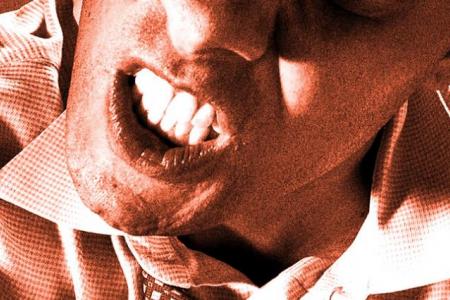Trying times give air to racism and xenophobia: Experts
Social scientists say it is vital Singapore society pushes back hard to combat such ugly behaviour
The incident of a man allegedly kicking a Singaporean Indian woman and shouting a racial slur at her has raised the ugly spectre of racism in the country.
It sparked a powerful backlash, with Prime Minister Lee Hsien Loong on Monday condemning the alleged racist attack, saying "it goes against everything that our multiracial society stands for".
Speaking in Parliament yesterday, Minister for Law and Home Affairs K. Shanmugam said Singapore "will fail" if it allows attitudes of racism and xenophobia to be part of society.
Singapore's multiracial, multicultural harmony has been studiously nurtured by the Government over the years, but social scientist Mathew Mathews said that just like in so many other developed countries, racism will still rear its ugly head here from time to time, especially in tough moments such as the current Covid-19 pandemic.
Speaking to The New Paper yesterday, Dr Mathews, principal research fellow at the Institute of Policy Studies (IPS) and head of IPS Social Lab, said: "While there has been more education over the years advocating racial harmony, racial biases are sometimes very deep-seated. Parents pass it on to their children, and life events reinforce this.
"Also, in times like this when people are anxious, blaming others seems to be a common response."
Associate Professor Daniel Goh, deputy head of the National University of Singapore's sociology department, said Singapore's strong foundations of multiracial and multicultural tolerance has kept such ugly behaviour in check, but the country's open economy, increasingly competitive job market and the current pandemic has given racism and xenophobia some air to break out.
"Anti-immigration xenophobia and racism have been bubbling under the surface for the past 10 years or so.
"Xenophobia is linked to the intensification of the labour market competition, as our workers have become more exposed to global competition for jobs... it might generate the belief that groups of people are 'stealing' certain jobs," said Prof Goh.
In his speech in Parliament yesterday, Mr Shanmugam said there are online platforms that deliberately fan racism. Such websites and social media platforms are difficult to police.
Dr Mathew said that while people have been taken to task by the law over the years for posting racist comments, that cannot be the only way to deal with racist speech.
He said: "Hopefully, the community itself can be vigilant and correct fellow online users when they descend into hate or stereotype particular groups."
Concluding his speech yesterday, Mr Shanmugam said: "(Singapore) will fail if we allow racism and xenophobia to become prevalent, and it is contrary to everything that has made us successful and proud to be Singaporean."
Earlier this month, a few members of private club 1880 in Nanson Road expressed outrage after an "insensitive and inappropriate" question about the murder of African-American George Floyd was included in a pub quiz, and the club duly issued an apology.
Citing how a passer-by came to the aid of Madam Hindocha Nita Vishnubhai after she was attacked on Friday, Prof Goh said that in the end, how Singapore society reacts to racism and xenophobia is what will decide whether such ugliness is kept at bay here.
The police yesterday arrested the man who allegedly attacked Madam Nita and are investigating the case.
"It is important to point out that the virus is highlighting resilience too, because every time something like this happens, a far larger group of Singaporeans would respond vocally and actively with kindness and aid," Prof Goh said.
"We can minimise impact by strongly condemning it and highlighting the kind and respectful acts of Singaporeans who will not let the victims suffer alone."
FOR MORE, SEE: Man, 30, arrested for public nuisance and causing hurt
Get The New Paper on your phone with the free TNP app. Download from the Apple App Store or Google Play Store now


